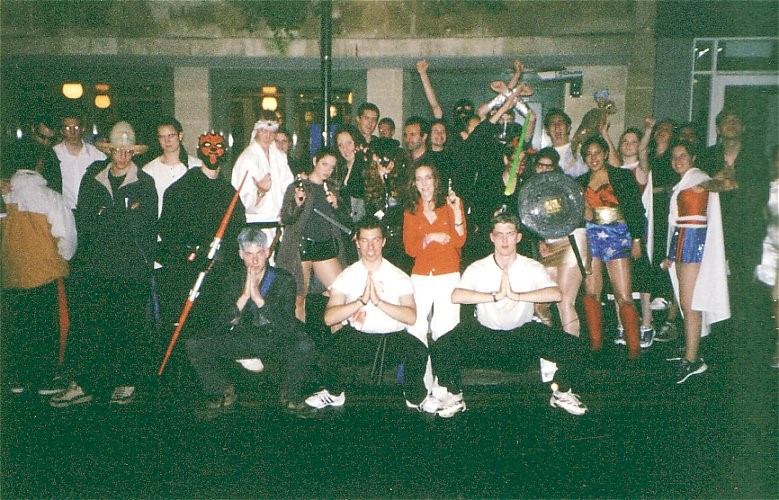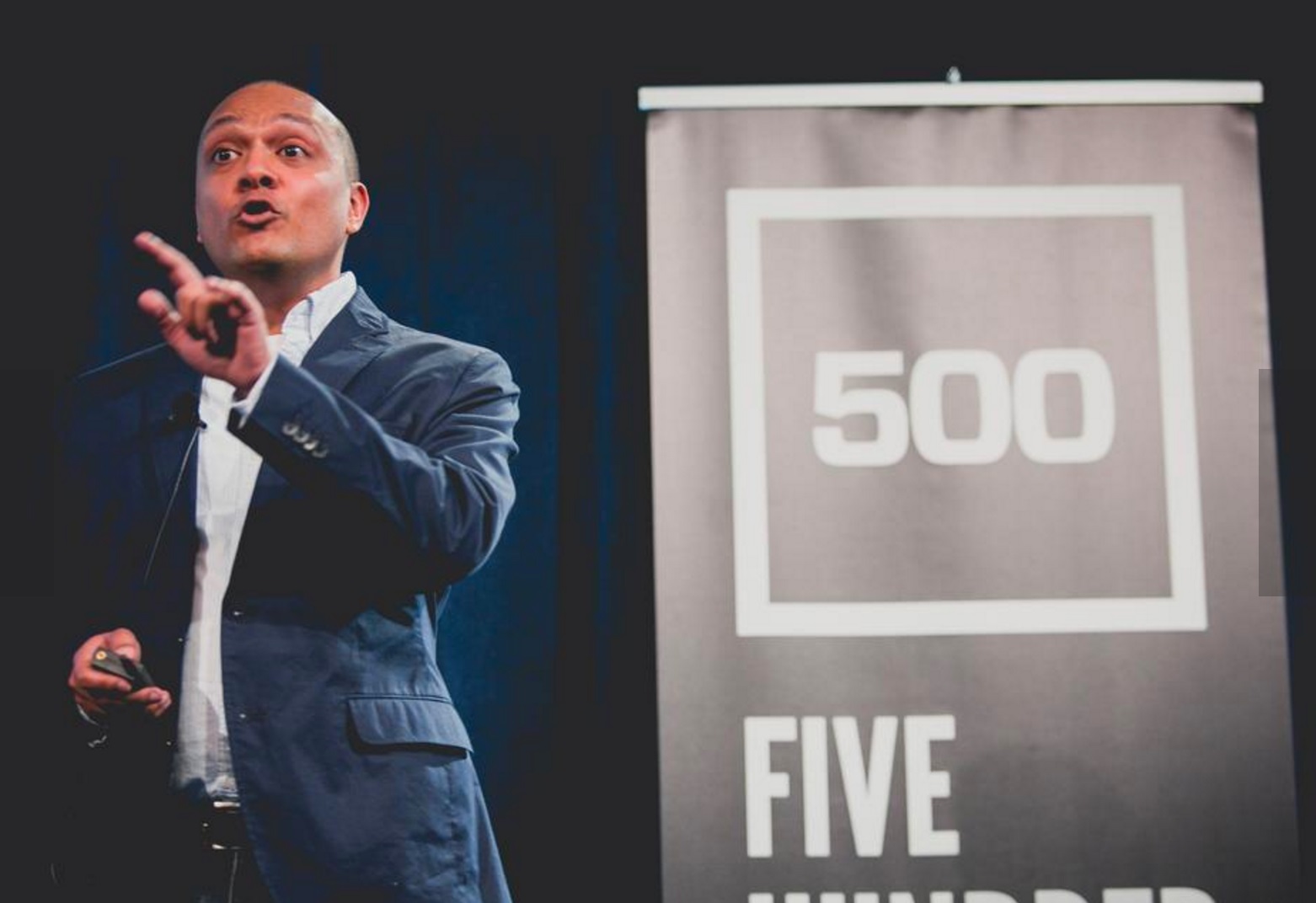Alumnus Amit Kothari is the CEO of a business process automation software startup called Tallyfy. This is a story of how he got there, starting with his wonderful years at University of Bath.
Life as a student
My start at the University of Bath – in the year 2000, was ridiculously mad and exciting.
I missed the entire dot-com-boom-and-bust. Social networks were huge at the time, and I hadn’t even heard of business process automation. I had wonderful housemates – we lived in Eastwood 44 on campus – which must have changed a lot now.
Freshers week was a blur, and all I remember is destroying a perfectly good bowtie and tuxedo in that first week, and 'Game On' nights on campus. It was truly awash with glittering eyes that (like me) - realised “I’m at university now!”
One of my housemates set up the kickboxing club as a university society, and despite my frame, I joined. I set up the creative writing society. Let’s say the two didn’t really mix. That’s when I got my first taste of “setting my own thing up.”
People don’t realise, but it only takes a bit of personal pride in something you created which other people also want to be part of, to smell the coffee and go on adventures that can lead anywhere. A university society is one of those things.
The societies that were more fun to talk about went on big benders in the beginning. The picture below is from an “initiation” in 2001 for the kickboxing club.

I really feel for the non-university residents of Bath - they had to put up with our madness and energy. It often ended up at The Huntsman, which if I remember - was open late. Or some club - wandering around and crashing into mirrors. Then clambering into whatever vehicle looked orange and large - back up that hill and into bed. Daytime was no better. I hope nobody is still putting washing-up liquid into the fountain at Laura Place?!
All this aside (which is more a rite-of-passage I guess!) - I had an absolutely tremendous time at Bath. I took a year off in my degree - and eventually made it to the Abbey for graduation, a proud moment. I’ll be honest and tell you that I felt very uncertain at graduation. The “structure” of the past was being left behind - with the Big Wild West ahead.
Life after Bath
What ensued over the next 15 years was a life worth living (at work) - and it kept me glued to a mission of growing and scaling my own business in the area of workflow management and process automation.
I spent my first two years after graduation at a large consultancy firm. I realised quickly that what people called a “career” in some firms is really just a lock-in to maximise revenue from selling young people at a large daily rate and then slowly increasing their salaries to make them feel like they’re making progress.
I guess I was trying to fit into a hole that wasn’t for me - but I wasn’t cynical. I have progressed from being a rebel-without-a-cause to a balding 35 year old who knows when to feel, when to think and when to act. In my focus area - business process automation - experience is mandatory.
I didn’t enjoy shuttling around various hotels and cities doing anonymous things I didn’t really care about. I left that first role, and then joined a very small firm in London that was thinking about the future of collaboration software in large companies. Facebook was just taking off in general in the consumer world, so this was fairly cutting edge.
I was there for six years, and it was awesome. I learned a lot, and met some of the edgiest minds in collaboration and workflow automation. I launched my first startup, which failed. I learned one specific thing - don’t change a formula that’s already working just because “it might scale.” Get in touch if you’d like details.
My second startup also failed, but I really put myself on the line on that one. I learned about product/market fit and moved up the learning curve.
Startup Success with Business Process Automation
In 2014, my wife and I pitched an idea to Startup Chile - which funds any scalable idea with equity-free grants. The catch? You have to move to beautiful Santiago, Chile for at least six months. My wife and I left London, but there was still no company. Tallyfy had not yet been born.
After some experimentation, we realised that some large forces were at play that we could easily ride for natural momentum in Tallyfy:
- Businesses can only scale through repeatable workflows. Such repeatable workflows are not the same as a project, or a to-do - which are one-off (not repeatable).
- A repeatable workflow is mostly locked into a document or flowchart - you can’t track it, it’s hard to improve and nobody follows it. You especially can’t look at a flowchart on a phone - the screen’s too small.
- You can’t improve a process unless you’re tracking it - because you have no data on who does what, how, when and how long it takes. You also can’t automate a process unless you track it.
- The existing Business Process Management market is worth billions, but only sells to IT people - because ordinary business folk can’t make any sense of it.
- If we could automate workflows and make business processes easy enough for anyone to create and track on the cloud, we could not only conquer new markets - but we could disrupt existing ones.
- About five years ago, you had to be a coder to write integrations between apps. Nowadays, services let you create point-and-click integrations with no tech know-how. This means we don’t need to spend money building integrations.
- People are just googling what they want and using apps. Nobody is asking IT anymore.
- Customer-facing workflows are a massive opportunity to improve customer and client relationships - and yet nothing easy exists to help professional services firms with that.
After all the above - we pitched and won a $50k grant through Arch Grants in St. Louis, Missouri. We stayed within our mission - making business process automation easy. However, it took 6 months to get a US E2 work visa with their help. It was the most amazing thing that ever happened to me, hands-down. I’ve grown to love St. Louis and the US too.
In the last 15 months, I’ve gone through 500 Startups and Alchemist Accelerator - two of the top accelerators in the world - and I’ve probably pitched 150 angel investors and VC’s in Silicon Valley. We’ve raised around $1m in total funding, and we aim to stay in St. Louis.

Silicon Valley is interesting. It’s expensive, everyone has a poker face - but mostly - there’s some really awesome people. I tried to oppose the opinion that everyone feels like you have to move there if you want to be successful, smart and clever. You don’t.
I’ve learned that you really shouldn’t try to raise money in Silicon Valley (as an outsider) until you’ve got your business well off the ground and can show solid traction with a repeatable sales or growth model. I hope that advice helps a Bath alumni!
How a Computer Science degree at Bath equipped me for success in the process management industry
We learned hard principles in our degree around multi-agent systems, fundamental principles in algorithms and algebra enabled me to appreciate whatever came next. Part of the challenge with business process automation is fundamental problems in integration, data modelling and data cleansing/mapping between systems.
The hot topic at present is deep learning and recurrent neural networks. We want to use them to predict workflow delays and failures before they occur. We are exploring deep learning at Tallyfy, which would be impossible to really understand without my degree from Bath.

Respond



